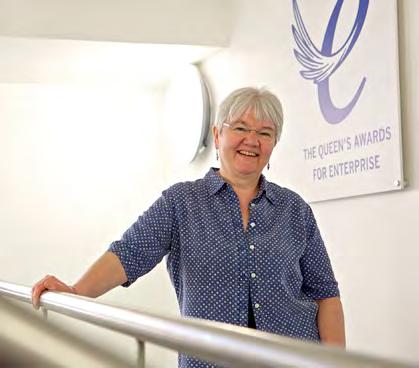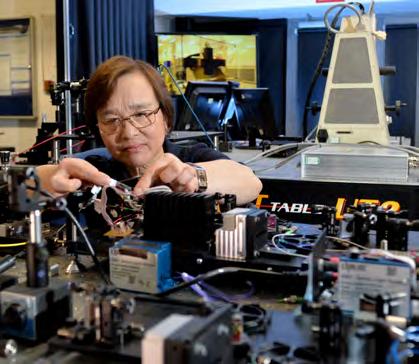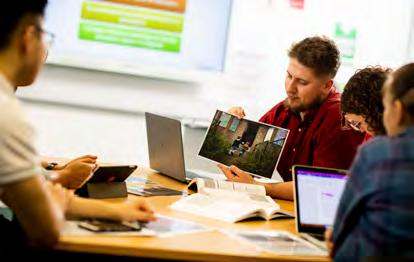
3 minute read
Our research centres and institutes
Our research centres and institutes have been created to address global challenges facing society today and in the future.
Centre for Precision
Advertisement

Find out more!
Technologies
The University’s Centre for Precision Technologies (CPT) is widely recognised as both a UK and world-leading centre for advanced manufacturing metrology, demonstrated through large-scale research projects, large-scale funding, extensive industrial engagement, and both broad and farreaching impact nationally and internationally. Manufacturing metrology can be described as advanced measurement in manufacturing and it is critical infrastructure for manufacturing growth and productivity and underpins smart manufacturing across all sectors. The Centre’s research outputs provide cuttingedge theories and technologies, provide industry with innovative solutions (hardware and software). The team also takes an active role in identifying UK research priorities through academic and industrial communities.
Northern Productivity Hub
Find out more!
Located in the Huddersfield Business School, the Northern Productivity Hub comprises of researchers who have interests relating to the productivity of private and public institutions, the impact of the economy and regulations. The aim of the Hub is to generate and disseminate high-quality research that has potential to inform and shape academic debates and influence policy and practice. Within the Hub there are four research themes, • Supply chains • Digital transformation • Applied finance and economics • Human capital. The Hub facilitates collaboration between researchers from different disciplines and aims to promote innovation, fresh insights and contribute to a robust evidence base.

None in Three

Find out more!
Established for the global prevention of gender-based violence, and named to reflect the number of women and girls who are subject to physical or sexual violence in their lifetime, the None in Three centre uses research to develop and evaluate computer games to change attitudes and behaviours relating to gender-based violence. None in Three is notable for using research to intervention and prevention globally, with off shoots in India, Jamaica, Uganda, the UK and Brazil. The specially recruited in-country researchers have conducted hundreds of interviews with survivors and perpetrators of violence. The data has been analysed and reports on the findings now in development will include policy recommendations from Ni3. The research team has developed a policy hub to inform and guide strategy, their ultimate goal, to reinforce social and behavioural change. The findings are also enabling development of the computer games, ensuring they are tailored to the lived experiences of survivors in the relevant countries and cultures.
HudCRES
Find out more!
Huddersfield Centre for Research in Education and Society (HudCRES) is focused on exploring the nature and impact of education and the development of applied social research to create change and achieve impact. The research outputs aim to inform and improve social and educational policy and practice at a local, national and international level. HudCRES breadth is wide and varied, including a major national initiative aimed at helping spot early signs of radicalisation or possible involvement in terrorism, which is directly acting upon years of research.
Professor Paul Thomas
The Centre’s work also includes delivery of the first national-level analysis of early intervention programmes in England for young people who are considered vulnerable to becoming NEET (not in education, employment or training).










